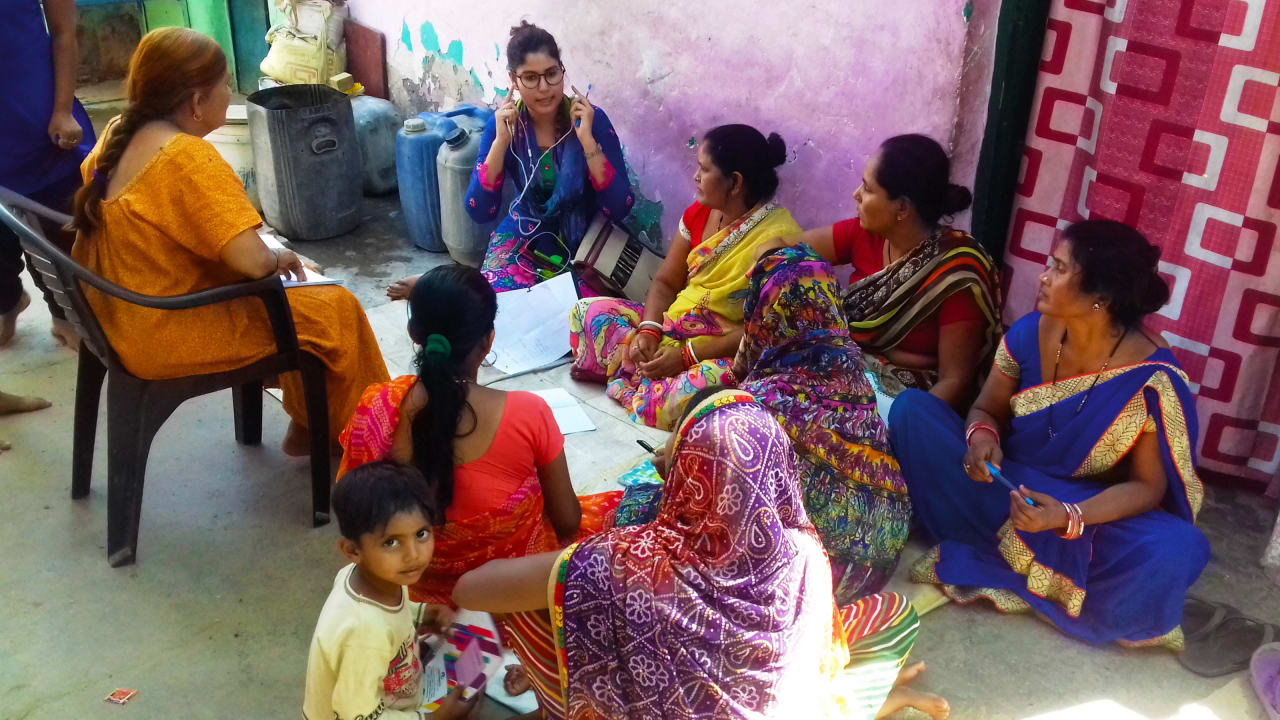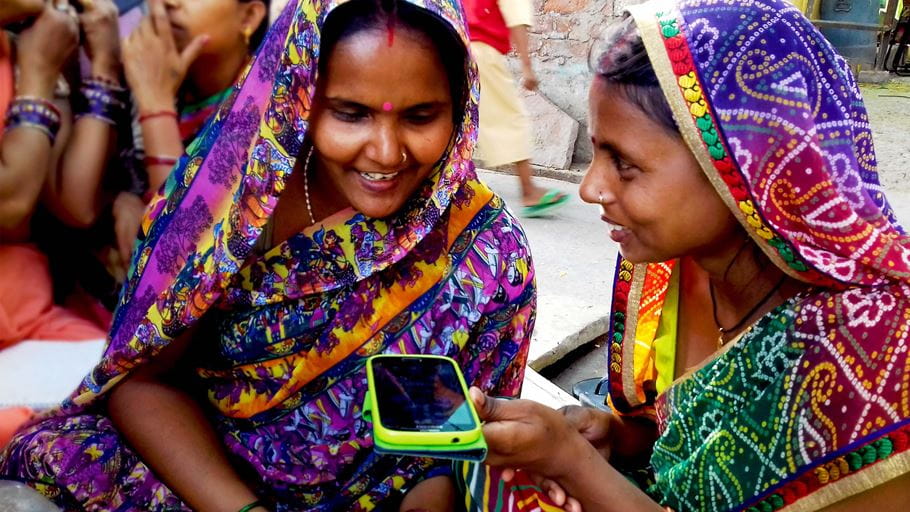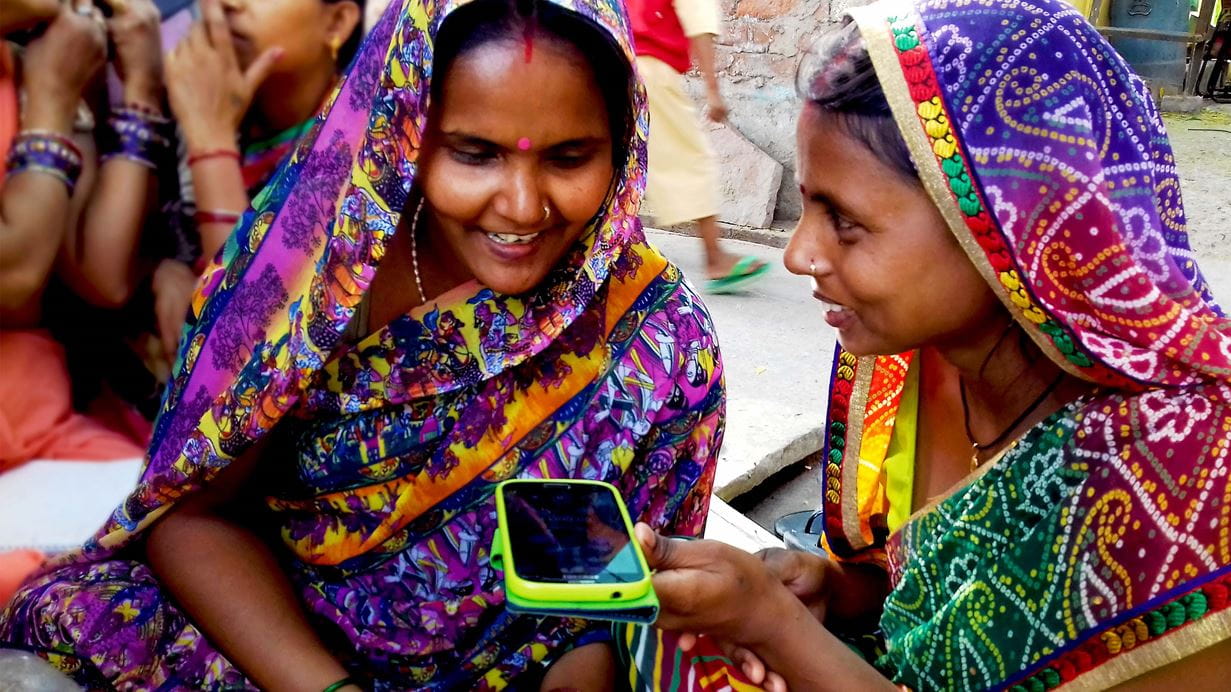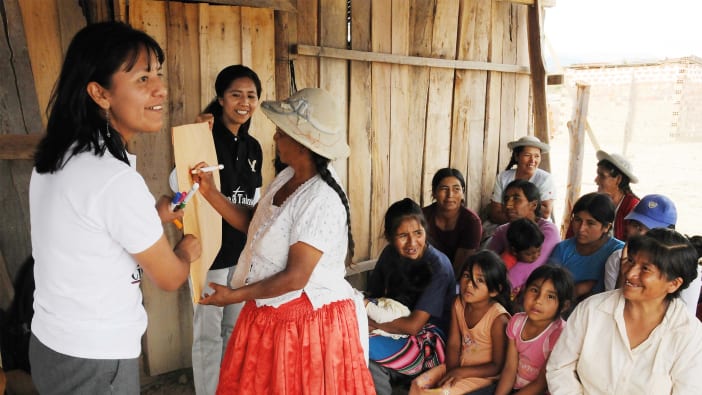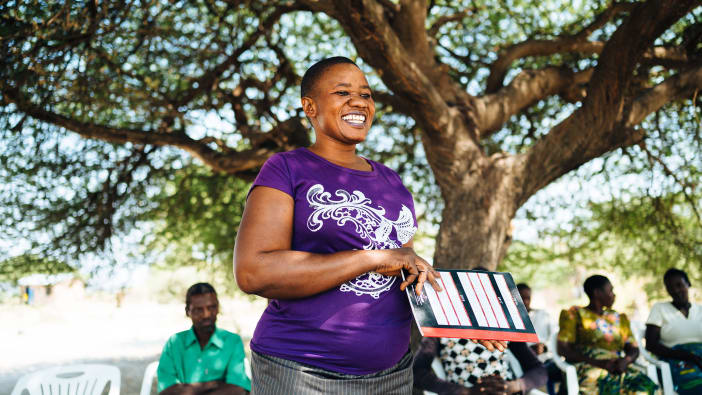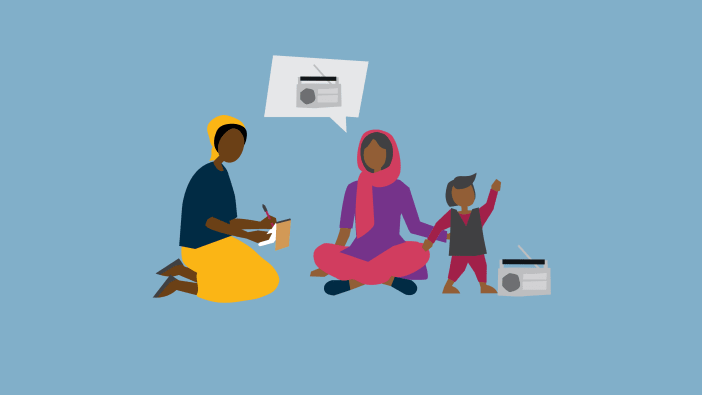‘My village was Benipur in Bihar, India. When the water came at night it swept people away, along with their beds. No water to drink – with water all around. I remember people went hungry for days. It was the most painful time.’
These are the words of Renu Devi who, after devastating floods in Bihar in 1987, moved with her husband to an informal settlement on the outskirts of Delhi, where they still live today.
Renu recorded these words, and more of her story, in a short video after taking part in a project facilitated by local organisation Ideosync Media Combine. The participants learnt how to use mobile phones to take photographs, record audio and video, edit short photo stories and browse the internet.
The purpose of the project was to build skills and open up new communication opportunities for people whose voices are rarely heard.
One facilitator said, ‘The women cried as they recorded their own voices and spoke of the hardships they have endured. They told stories about their mothers, questioned gender inequality and learnt to report on garbage and education issues.’ The women also recorded stories about unjust landlords, the lack of electricity in their homes and the hardship of earning a living selling vegetables on the street.


